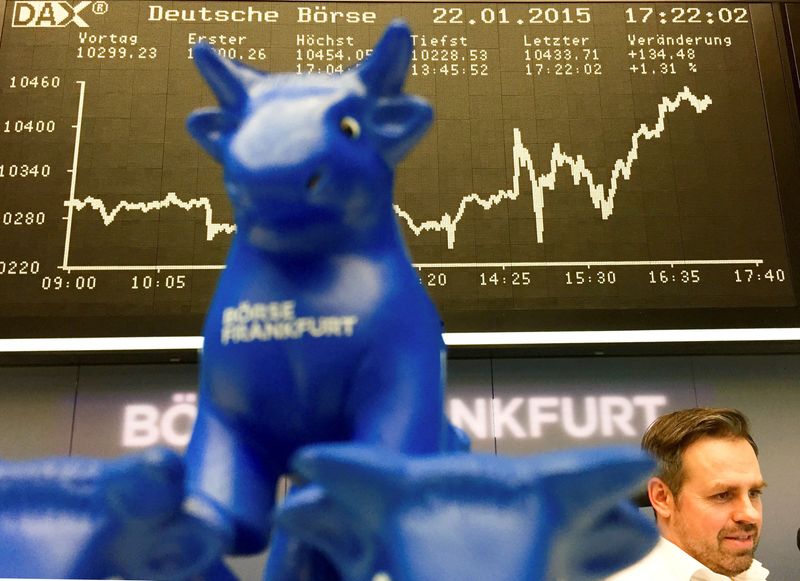By Peter Nurse
Investing.com - European stock markets edged higher Tuesday, helped by better than expected Spanish and German inflation numbers as investors monitor China’s ongoing COVID outbreak.
At 03:40 ET (08:40 GMT), the DAX index in Germany traded 0.2% higher, CAC 40 in France traded up 0.3% and the FTSE 100 in the U.K. gained 0.8%.
China reported on Monday its first drop in the number of daily infections in more than a week. Additionally, the country’s National Health Commission on Tuesday said it will present measures to accelerate vaccination of the over 80s, a vulnerable age bracket in which over one-third is still unprotected.
These measures followed widespread protests over the weekend amid growing public anger towards the country’s strict COVID-linked restrictions, and have prompted speculation that the Chinese government is considering scaling back its anti-COVID policies.
Back in Europe, Spanish consumer inflation rose by 6.8% from a year ago in November, down from the previous month’s 7.3% advance.
Additionally, the federal state of North Rhine-Westphalia, Germany's largest state by population, reported that consumer prices fell 0.8% on the month, a much sharper decline than the 0.2% expected by analysts, and a sharp reversal from October's 1.2% increase.
This all reinforces expectations for a wider slowdown in European prices ahead of Wednesday's preliminary reading of Eurozone inflation for November.
Inflation in the Eurozone is expected to come in at 10.4% in November, a small fall from October’s 10.6%, but these numbers suggest a bigger drop is possible.
That said, ECB President Christine Lagarde said on Monday the region’s inflation has not peaked and it risks turning out even higher than currently expected, hinting at more interest rate hikes ahead.
In corporate news, easyJet (LON:EZJ) stock fell 3.8% after the budget airline posted a full-year loss and scrapped its 2022 dividend, hit by surging fuel costs that outweighed a rebound in passenger demand.
Crude oil prices jumped Tuesday on speculation that the recent weakness will prompt OPEC+ to cut production when it meets next week.
The crude market has struggled of late as rising COVID-19 cases in China, the world’s top crude importer, has meant the reintroduction of strict mobility restrictions, weighing on economic activity and thus demand for crude.
At the same time, European and U.S. economies, the other major sources of energy demand, are rapidly approaching recession.
This has resulted in crude prices falling below the levels that spurred October's supply cut by the Organization of the Petroleum Exporting Countries and allies, known as OPEC+.
By 03:40 ET, U.S. crude futures traded 1.8% higher at $78.63 a barrel, while the Brent contract rose 2% to $85.59.
Additionally, gold futures rose 0.7% to $1,755.30/oz, while EUR/USD traded 0.5% higher at 1.0385.
